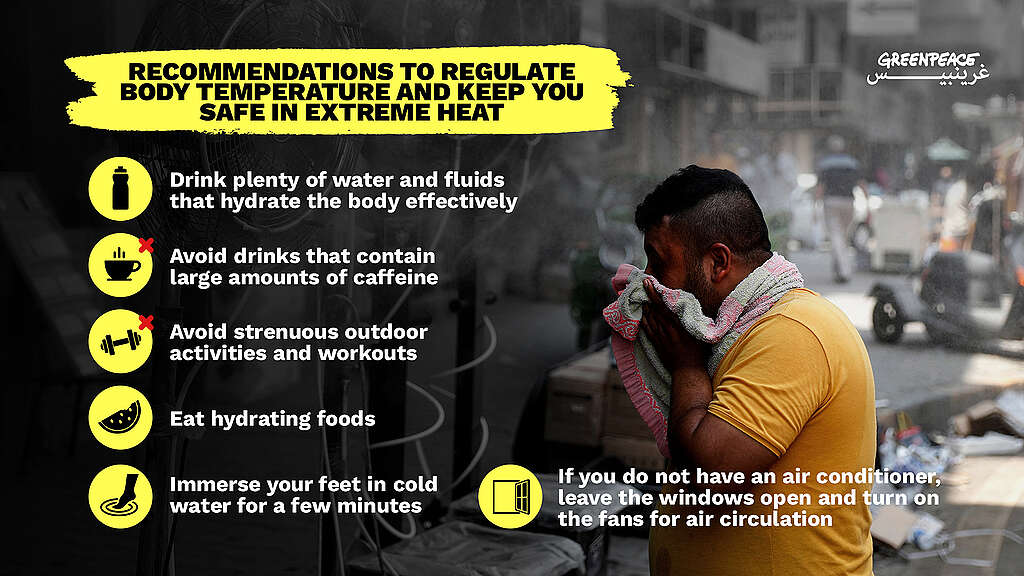
Experts say that extreme heat waves will become increasingly frequent and severe due to climate change in the coming years. Here are some tips for preventing heat-related illnesses, such as heat stroke and heat stress, during episodes of extreme heat.
Scorching temperatures continue to rise in several countries in the region. Cities in Kuwait and Iraq witnessed several record temperatures that reached 52.8 degrees Celsius, raising widespread concern regarding public safety and how to deal with the heat stress that the body is subjected to during extreme heat waves.
Knowing how to stay cool and hydrated will make it easier to endure a heatwave. Here are a few health recommendations to regulate body temperature and keep you safe during episodes of extreme heat:
- Drink plenty of water and fluids: The golden rule of hydration is to drink when you feel thirsty. However, when temperatures start rising, it may be difficult to measure how much fluid your body is losing. If you find it difficult to motivate yourself to drink plain water, you can resort to drinks that hydrate the body effectively, such as juices, milk, tea, and even soft drinks.
- Avoid drinks that contain large amounts of caffeine or alcohol: Alcohol and caffeine are both diuretics and increase dehydration. Therefore, it is better to avoid consuming them as much as possible.
- Eat hydrating foods: Any food or drink that contains a high percentage of fluids will hydrate the body. Watermelon, peaches, berries, grapes, and oranges are all suitable options. Additionally, vegetables that can be juiced, such as cucumbers, celery, and olives, are full of fluids. Liquid-based meals, such as soup, can also help you stay hydrated.
- Avoid strenuous outdoor activities and workouts: Try not to exercise during the hottest times of the day. The early morning and afternoon are usually cooler and therefore have a milder impact on your body when exercising. To reduce your fluid loss and maintain a moderate body temperature, choose low-impact exercises, such as yoga or Pilates, which usually involve slower movements.
- Immerse your feet in cold water for a few minutes: Research shows that immersing your feet in cold water is a good way to reduce your body temperature and keep your organs safe. This also helps reduce swelling in the ankles and feet.
- If you do not have an air conditioner, leave the windows open and turn on the fans for air circulation: Not having an air conditioner at home or in the office may seem like a nightmare for some, but many people do not have this option and have to resort to a fan. Make sure to keep the fan at a safe distance from your bed and not have it pointed directly at you.
* Fossil fuels are turbo-charging extreme weather events and people all over the world are suffering the consequences. While international Oil and Gas Companies count their billions, vulnerable communities especially in the Global South are counting the losses from the record-breaking floods, wildfires, droughts, and heatwaves that these companies are fueling. This is the stark reality of climate injustice, and we must end it! It is time to force big oil companies to stop expanding oil and gas production around the world and to bear the cost of the climate devastation they are causing everywhere.
